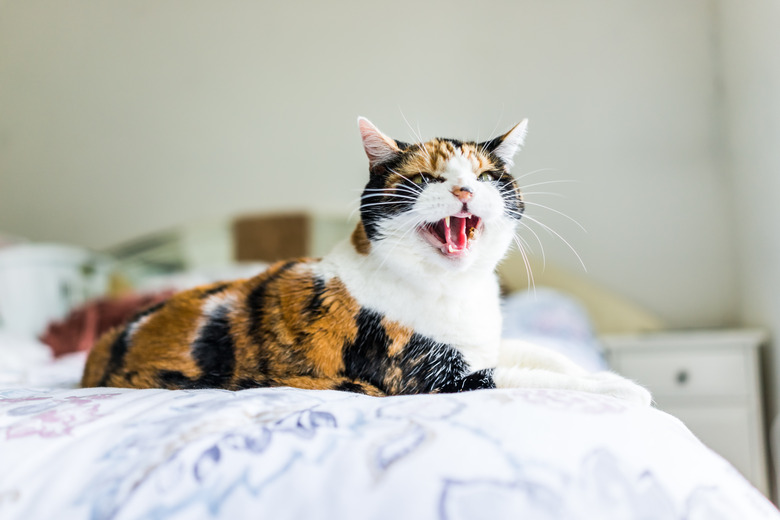Why Is My Cat Hissing And Growling For No Reason?
Cats are creatures of mystery, which is part of their appeal. One moment they're kneading you or rubbing their face against you, and the next they're ignoring you. They might go from purring one second to suddenly sitting in a corner.
Cats have different senses than humans do, so when you see your cat hissing at thin air, it might not mean that she's seen a ghost. She might be looking at something or hearing something that you can't see with your limited, mortal senses.
Why do cats growl?
Why do cats growl?
Growling and hissing are both very common ways that cats communicate. A cat growling and hissing is usually a cat who's scared. The Humane Society says that cats have a wide variety of vocalizations that they use for communicating, both with other cats and with humans. A cat who is growling, hissing, or spitting is a clear sign that the cat is agitated, frightened, or angry about something.
The problem is that when a cat is growling, it's not always obvious to us why they're growling. Even when a cat seems to be simply staring at a wall there are things that they can sense that humans cannot. Cats have keen eyesight since they evolved to be hunters. For example, your cat may notice the movement of a dust particle, or something else that is interesting to him that just happens to be on a very small scale.
When your cat growls and hisses, he's effectively saying, "Back off now, or else." Usually, a growl is just a warning and he won't actually attack. Growling is often accompanied by hissing along with possibly arching his back. The point is to make himself sound and look fierce enough that whatever is bothering him backs off.
Cat hissing at thin air
Cat hissing at thin air
Cats can hear much better than we can. Hartz says that on the low range of hearing, cats and humans are about the same in what we both can hear. The high end of the hearing range in humans, however, reaches its limit much sooner than cats' hearing reaches its limit. This means that cats can hear things of a much higher pitch than humans can.
In fact, the range of what cats can hear is even higher than that of dogs! In another anatomical difference, cats can swivel their ears in all directions, which helps them pinpoint the source of sounds with much more accuracy than we can. Even if you can't tell where a sound is coming from, or even hear the sound, your cat will be able to pinpoint it precisely.
A cat hissing at thin air could be hearing something in the house that you can't see or hear. There may be an animal outside that she can hear or smell. If there are loud children in the house, your cat growling may be a sign that she is agitated and scared. Visitors to your home can easily bring on a growl, a hiss, or both, particularly if they forget their manners and approach your cat suddenly.
Why is my kitten growling?
Why is my kitten growling?
Sometimes a kitten growling is simply a biological impulse. Mother cats will hiss and growl to warn others away from their kittens. The kittens are learning from their mother, so they may hiss and growl just to emulate her. Older cats may growl to protect a toy or food.
Bottom line, cat growling is a natural way that cats communicate. But, if your cat is consistently growling and hissing at something you can't see, it might be a good idea to get him checked out by a veterinarian. If there's some external factor that may be agitating your cat, such as a next-door dog that is barking, perhaps try to comfort your cat or allow him to control his environment by giving him safe, quiet places to hang out.
